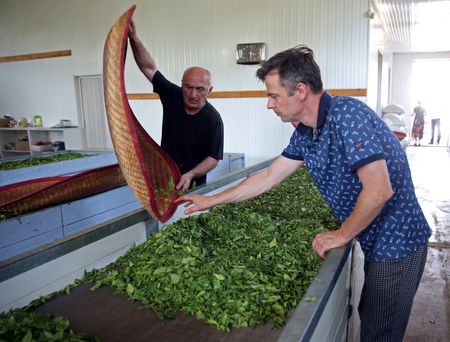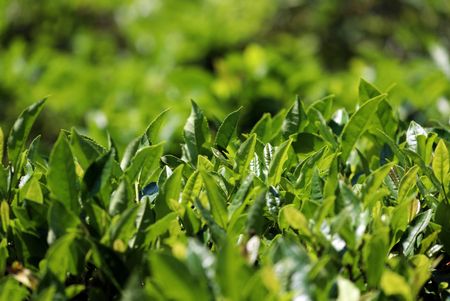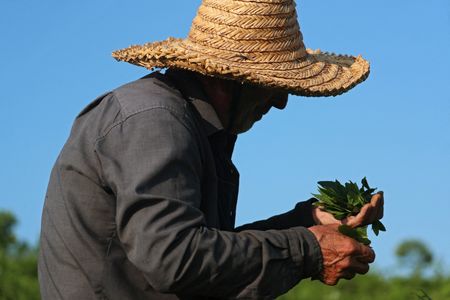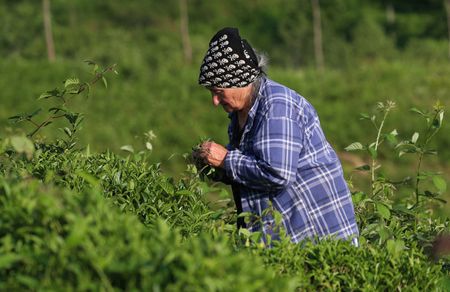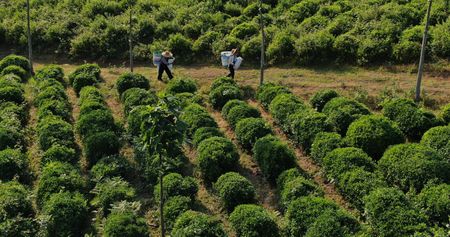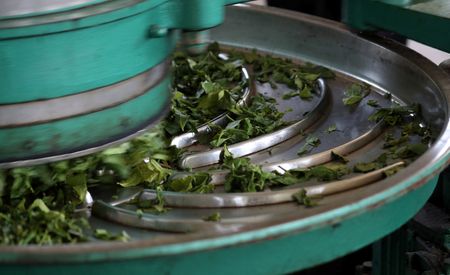By Felix Light
ANASEULI, Georgia (Reuters) -When Lika Megreladze was a child, life in her native western Georgian region of Guria revolved around tea.
Her mother worked for decades as a scientist at the Soviet Union’s Institute of Tea and Subtropical Crops in the village of Anaseuli, perfecting cultivation methods for a Georgian tea industry that supplied the bulk of the vast communist state’s brews.
“When I was a child, this was only my mum’s workplace. Only later I realised that it was something big,” she said.
Now the institute lies abandoned. Yellowed papers are strewn around its decaying corridors, and a statue of Soviet founder Vladimir Lenin lies toppled and overgrown in the courtyard.
Throughout Guria’s verdant subtropical hills, sprawling plantations have relapsed into jungly thickets interspersed with wild forests of tea. Dozens of cavernous old tea factories now stand empty and deserted.
Introduced to Georgia in the early 20th century by a Chinese expert invited by the Imperial Russian authorities, tea plants flourished in the hot, humid climate of Guria, which stretches down from the Caucasus mountains to the Black Sea coast.
But for the tea industry, the restoration of Georgia’s independence in 1991, after two centuries of rule from Moscow, came almost as a death blow.
The collapse of the Soviet Union opened its market to cheaper Asian imports, while the disintegration of the Georgian economy amid a brief civil war in the early 1990s saw electricity cut off, and tea factories plundered for spare parts and scrap metal.
By 2016, according to official figures, Georgian tea production had declined 99% from its 1985 peak.
“The institute collapsed because the Soviet Union collapsed,” said Megreladze, who now owns a guesthouse and cultivates her own small tea plantation for visitors.
“Georgia, a young country, could not save this huge industry,” she said.
Now, over three decades since the Soviet collapse, some locals are trying to revive the tea industry. Ten years ago, Nika Sioridze and Baaka Babunashvili began rehabilitating derelict tea plantations, financed partly by a grant from the Georgian government.
Their GreenGold Tea is one of several new companies that brought tea fields in and around Ozurgeti, Guria’s regional capital, back to life.
Processing their tea in one wing of an abandoned Soviet silk factory in the town, they aim to reintroduce Georgian tea to local and European buyers.
“For 40 years nothing was happening here. Here was a jungle,” said founder Sioridze.
Under the Soviet Union, which prioritised quantity of production above all, Georgian tea mainly acquired a poor reputation for quality. Guria’s fields grew mostly simple black teas, with bushes harvested by machines, seeing older leaves and even stems thrown into the mix.
Now, they say, their task is to reinvent Georgian tea as a high quality, distinctive product for a new era.
“We must be different from Chinese tea makers, Taiwanese tea makers,” said Sioridze. “Because Georgia is Georgia and we need some niche to make our own tea.”
(Reporting by Felix LightEditing by Peter Graff)

